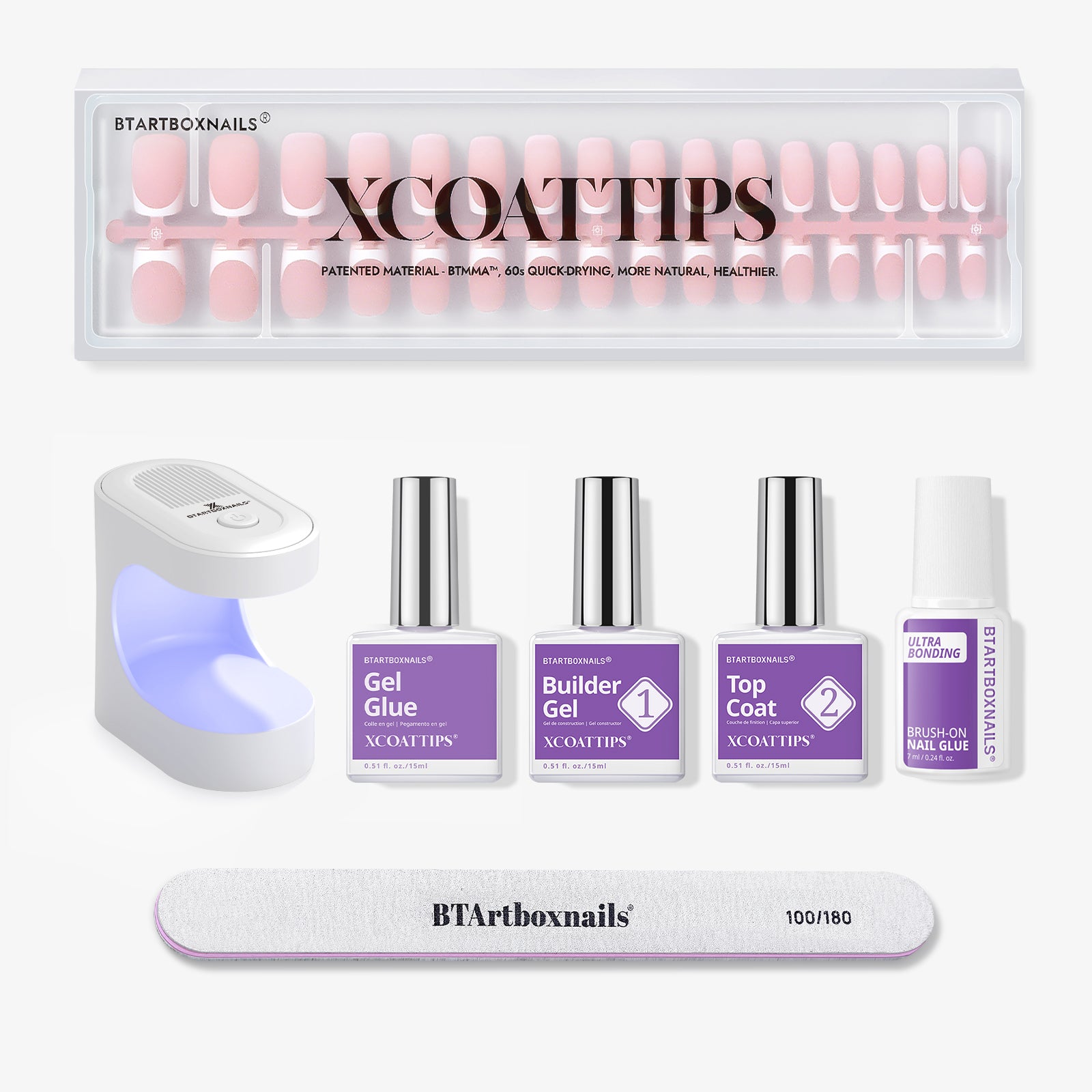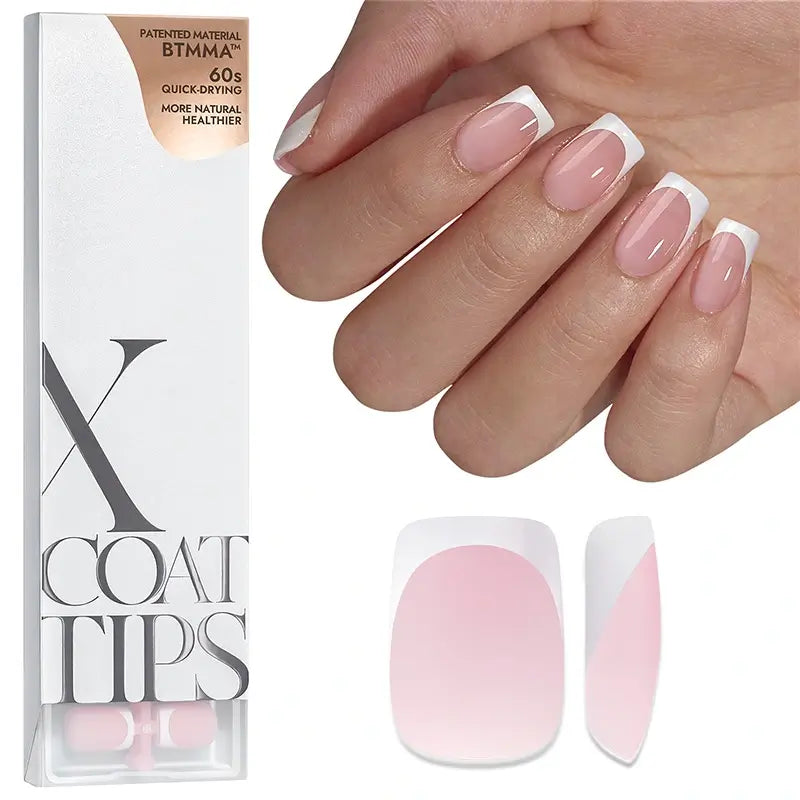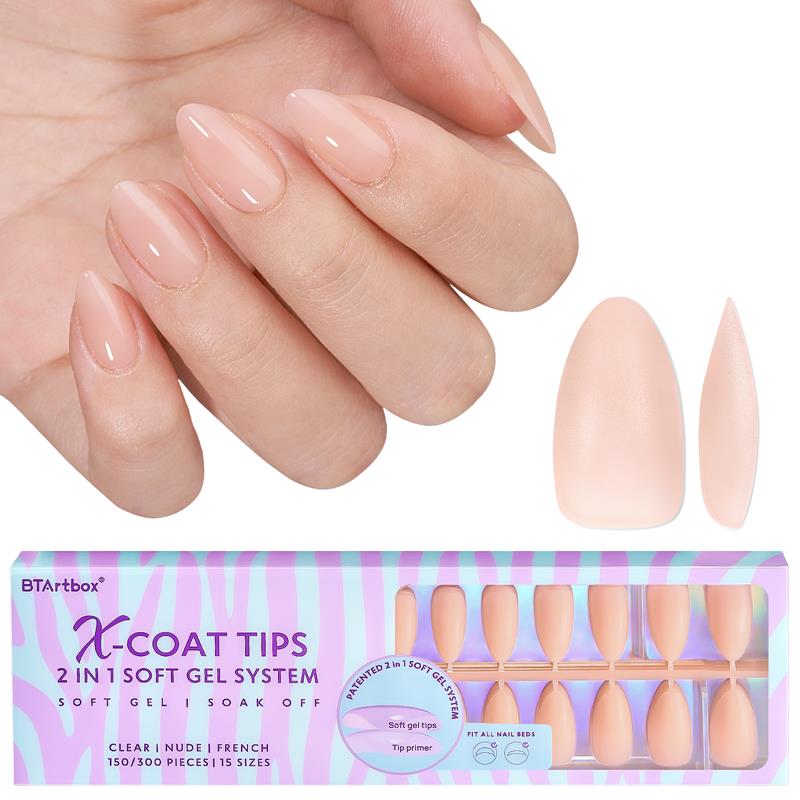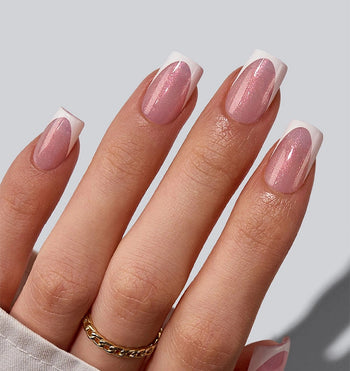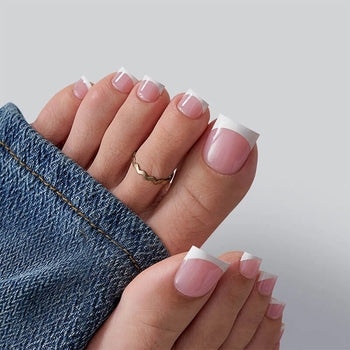Nail glue and super glue are both adhesives that are commonly used for various purposes.
However, many people wonder if is nail glue the same as super glue. This question is important for readers because it can affect the effectiveness and safety of using these adhesives for different applications.
Nail glue is a type of adhesive that is specifically designed for use on nails. It is commonly used to attach fake nails or repair damaged natural nails.
Super glue, on the other hand, is a multi-purpose adhesive that can bond a wide range of materials, including plastics, metals, and wood.
While both adhesives contain cyanoacrylate, which is the main ingredient responsible for their bonding properties, there are some differences between nail glue and super glue.
This article will explore these differences and answer the question: Is nail glue the same as super glue?
Table of content
Is Nail Glue the Same as Super Glue
Nail glue and super glue are both adhesives that are used to bond objects together.
However, they are not the same.
Nail glue is specifically formulated for use on nails, while super glue is designed for bonding various materials tightly and permanently.
Composition of Nail Glue and Superglue
The composition of nail glue and superglue is different. Nail glue is usually made of ethyl cyanoacrylate, while superglue is mostly made of cyanoacrylate. The difference in composition affects their bonding strength and flexibility.
Strength and Flexibility
Super glue is generally stronger than nail glue and has a more durable bond. It can bond a wider range of objects, including plastics and metals. On the other hand, nail glue is designed for a specific purpose, which is to attach artificial or press-on nails to natural nails or to repair damaged nails. Nail glue tends to be more flexible than super glue, making it less likely to crack or break.
Safety While Using Nail Glue and Superglue
Nail glue is safe for use on skin and nails, whereas super glue is not. Super glue can cause damage and irritation to the skin and nails. Nail glue is also gentler on natural nails than superglue. Some nail glue formulations even contain ingredients that help with nail growth.
What is a Nail Glue?
Nail glue, also known as nail adhesive or glue for nails, is a type of adhesive that is designed specifically for attaching artificial nails to natural nails or repairing damaged nails. It is a key component in the application of acrylic or gel nails.
Primary Ingredient in Nail Glue
The primary ingredient in nail glue is cyanoacrylate, which is a fast-drying and strong adhesive. Other ingredients may include ethyl cyanoacrylate, polymethyl methacrylate, and butyl acetate. These ingredients work together to create a strong bond between the artificial nail and the natural nail.
Nail glue is available in both liquid and gel form and comes in a variety of colors. It is easy to apply with a brush applicator, making it simple to control and ideal for intricate nail art. Nail glue dries quickly and provides a long-lasting hold, ensuring that the artificial nail stays in place for an extended time. And it needs to be dried under the nail lamp.
What is a Super Glue?
Super glue is a type of fast-acting adhesive that is commonly used in a variety of applications.
Its chemical composition is based on cyanoacrylate, a type of acrylic resin that is created through a reaction between cyanoacrylic acid and an accelerator.
The resulting adhesive is a clear, colorless liquid that is known for its strong bonding capabilities.
Super glue is often used in industrial settings, such as in the manufacturing of electronics and medical devices. It is also used in carpentry and woodworking, where it is used to bond wood, plastic, and other materials together.
Additionally, super glue can be used in everyday household tasks, such as fixing broken ceramics or repairing jewelry.
One of the benefits of superglue is its ability to dry quickly, often within seconds of application. This makes it a popular choice for projects that require a fast turnaround time. However, it is important to note that super glue can be difficult to remove once it has dried, and it can be irritating to the skin and eyes.
Key Differences Between Nail Glue and Super Glue
When it comes to adhesives, nail glue, and super glue are two commonly used products. Although they may look similar, there are some significant differences between them.
The following subsections highlight the key differences between nail glue and super glue.
1. Chemical Composition Differences
Nail glue and super glue are both cyanoacrylate adhesives, but they have different chemical compositions. Nail glue contains ethyl cyanoacrylate, while super glue contains methyl cyanoacrylate. This difference in composition affects their bonding capabilities and strength.
2. Bonding Capabilities and Strength
Super glue is generally stronger than nail glue and can bond a wider range of objects, including plastics and metals. On the other hand, nail glue is designed specifically for attaching artificial or press-on nails to natural nails or repairing damaged nails. Nail glue is less rigid than super glue, making it more suitable for applications that require some give.
3. Intended Applications
Nail glue is intended for use on nails, while super glue is designed for bonding various materials tightly and permanently, making it ideal for heavy-duty repairs. Nail glue is safe for use on the skin, whereas super glue is not. Super glue can cause skin irritation and chemical burns, and it should never be used on natural nails.
4. Removal and Safety Considerations
Removing nail glue is relatively easy, as it can be dissolved with acetone or nail polish remover. Super glue, on the other hand, can be more difficult to remove and may require the use of a specialized solvent. Both nail glue and super glue can cause allergic reactions and should be used with caution. If skin contact occurs, the affected area should be washed with soap and water immediately.
The following table summarizes the key differences between nail glue and super glue:

Can You Use Super Glue on Nails?
Super glue is a type of adhesive that is designed to bond to a wide range of surfaces, including plastic, metal, and wood. However, it is not recommended to use super glue on nails. While it may seem like a quick and easy fix for a broken or damaged nail, there are several potential risks and drawbacks to consider.
Pros and Cons of Using Super Glue on Nails
One of the main advantages of using super glue on nails is its strength. Super glue creates a very strong bond that can hold up well under pressure and last for a long time. It can also dry quickly, which can be convenient if you are in a hurry or need to fix a nail quickly.
However, there are also several drawbacks to using super glue on nails. For one, it is not specifically designed for use on nails and may not provide the same level of adhesion or flexibility as nail glue. It can also be difficult to control the amount of glue that is applied, which can lead to messy or uneven results. Additionally, super glue can be very difficult to remove from skin or nails if it is accidentally applied in the wrong place.
Potential Risks of Using Super Glue on Nails
There are several potential risks associated with using super glue on nails. For one, it can damage your natural nails by causing them to become brittle, weak, or discolored. It can also cause irritation or allergic reactions if it comes into contact with your skin. In some cases, it may even cause chemical burns or other serious injuries.
Best Practices for Using Nail Glue

Nail glue is a great way to achieve a flawless manicure, but it's important to use it safely and correctly. Here are some tips and best practices for using nail glue:
Preparation When Applying A Nail Glue
Before applying nail glue, it's important to properly prepare your nails. Start by cleaning your nails with nail polish remover to remove any oils or residue. Then, use a nail file to shape your nails and gently buff the surface to create a rough texture that will help the glue adhere better.
Application of A Nail Glue
When applying nail glue, make sure to use a small amount and apply it precisely to avoid getting glue on your skin or cuticles. You can use a brush applicator that comes with the glue or a toothpick to apply the glue.
Start by applying a small dot of glue to the center of your nail, then use the applicator to spread it evenly over the entire nail. Press the artificial nail onto your natural nail and hold it in place for a few seconds to allow the glue to dry.
Here are 2 videos about how to use different nail glue:
Safe Nail Glue Removal
When it's time to remove your artificial nails, make sure to do so safely to avoid damaging your natural nails. Start by soaking your nails in warm, soapy water for about 10 minutes to soften the glue. Then, gently wiggle the artificial nail back and forth to loosen it. If the nail doesn't come off easily, don't force it. Instead, soak your nails for a few more minutes and try again.
If you need to remove any leftover glue, use an acetone-based nail polish remover. Apply a small amount to a cotton ball and gently rub it over your nails until the glue is removed. Be sure to moisturize your nails and cuticles afterward to prevent dryness and damage.
Alternatives to Nail Glue and Super Glue
While nail glue and super glue are popular options for attaching artificial nails, there are other alternatives available that may be more suitable for certain individuals. Here are a few options to consider:
Nail Tabs
Nail tabs are double-sided adhesive tabs that can be used to attach artificial nails.
They are easy to apply and remove, making them a great option for those who want a temporary solution. Nail tabs are also gentle on natural nails and do not cause damage or irritation.
Professional Nail Adhesives
Professional nail adhesives are typically used by nail technicians and are designed to provide a strong and long-lasting hold. They come in a variety of formulas, including liquid and gel, and can be used with both natural and artificial nails. Professional nail adhesives are also safe for use on skin and do not cause irritation or allergic reactions.
Conclusion
While nail glue and super glue may seem similar, they are not the same. Nail glue is specifically formulated for use on natural and synthetic nails, while super glue can bond a wider range of surfaces, including plastics and metals. Nail glue is also gentler on natural nails and less likely to cause damage or irritation.
However, both nail glue and super glue dry quickly and provide strong adhesion. When using super glue, it is important to be cautious and avoid contact with skin as it can cause irritation, allergic reactions, and even burns.
When it comes to repairing nails, nail glue is the better option. It is easier to use and less likely to cause damage. For intricate nail art, nail glue also comes with a brush applicator for better control.
In general, it is recommended to use nail glue for nail-related tasks and super glue for other surfaces. It is important to always read and follow the instructions carefully and use the glue in a well-ventilated area.
Looking for the best and safe Nail Glue?
Discover the latest trends in press-on nails and nail glue at Btartbox Nails!
Elevate your style with our high-quality, easy-to-apply nails that offer salon-quality results without the hassle. Whether you're looking for classic designs or bold, eye-catching styles, we have something for everyone. Don’t wait—visit Btartbox Nails today and transform your look with our stunning press-on nails and reliable nail glue. Shop now and experience the perfect manicure from the comfort of your home!
Frequently Asked Questions
Is nail glue as strong as super glue?
Nail glue and super glue are both cyanoacrylate-based adhesives, but the strength of the bond can vary depending on the specific formulation of each product. Generally, super glue is considered to be stronger and has a more durable bond. However, nail glue is specifically formulated for use on nails and is gentler on natural nails than super glue, which can cause damage and irritation.
Can I use superglue instead of nail glue?
While super glue can be used as a substitute for nail glue in a pinch, it is not recommended. Super glue is much stronger than nail glue and can cause damage and irritation to the skin and nails. Additionally, nail glue is specifically formulated for use on nails and contains additional ingredients that promote nail health and growth.
What is a good substitute for nail glue?
If you don't have nail glue on hand, clear nail polish can be used as a temporary substitute. Simply apply a thin layer of clear nail polish to the nail and press the artificial nail onto the polish while it is still wet. However, this is not a long-term solution and should only be used in emergencies.
What is the strongest glue for fake nails?
The strongest glue for fake nails is typically a cyanoacrylate-based adhesive specifically formulated for use on nails. Look for a nail glue that contains additional ingredients such as BHA and citric acid, which can promote nail health and growth.
How to fix a broken nail without glue?
If you don't have nail glue on hand, a broken nail can be temporarily fixed using a small piece of tape. Simply cut a small piece of tape and place it over the broken area of the nail, pressing down firmly to secure it in place. However, this is not a long-term solution and should only be used in emergencies.
Is there a difference between super glue and nail glue?
Super glue and nail glue are both cyanoacrylate-based adhesives, but they are not the same thing. While both contain cyanoacrylate, super glue is 100% cyanoacrylate, while nail glue has lower concentrations of cyanoacrylate and other ingredients such as BHA and citric acid. Additionally, nail glue is specifically formulated for use on nails and is gentler on natural nails than super glue, which can cause damage and irritation.
